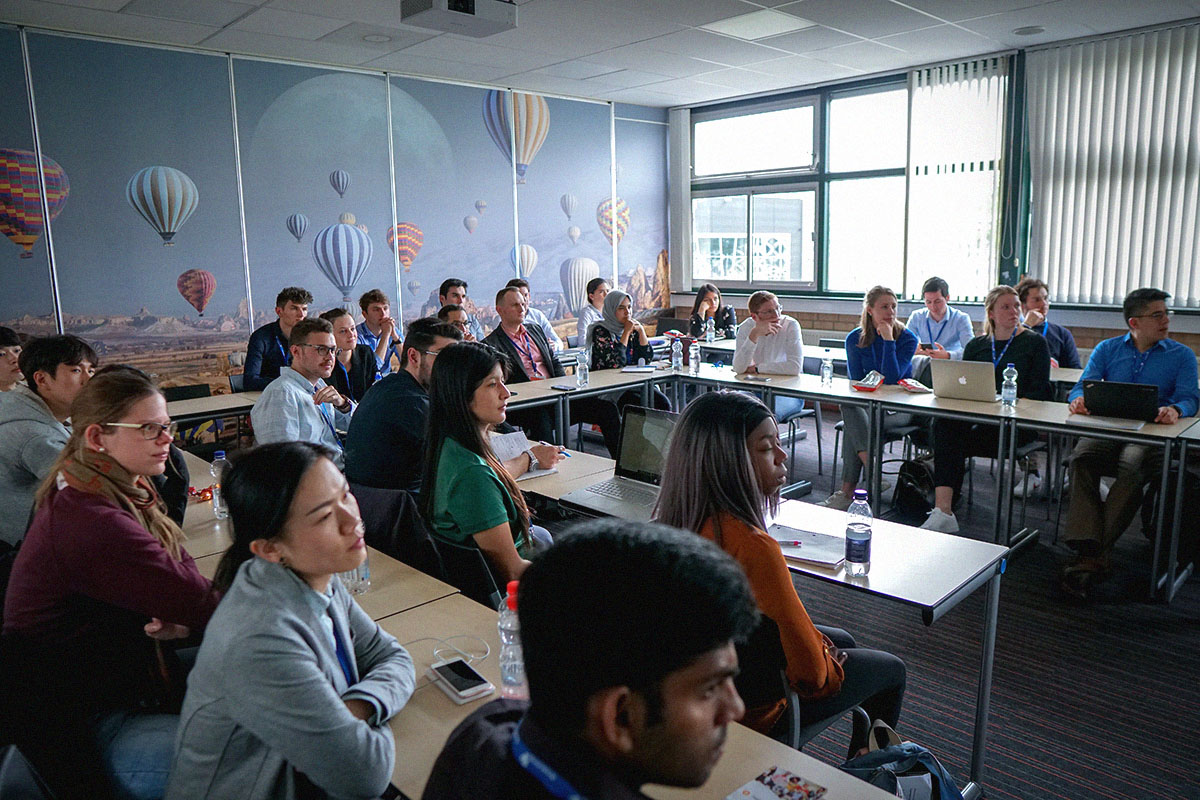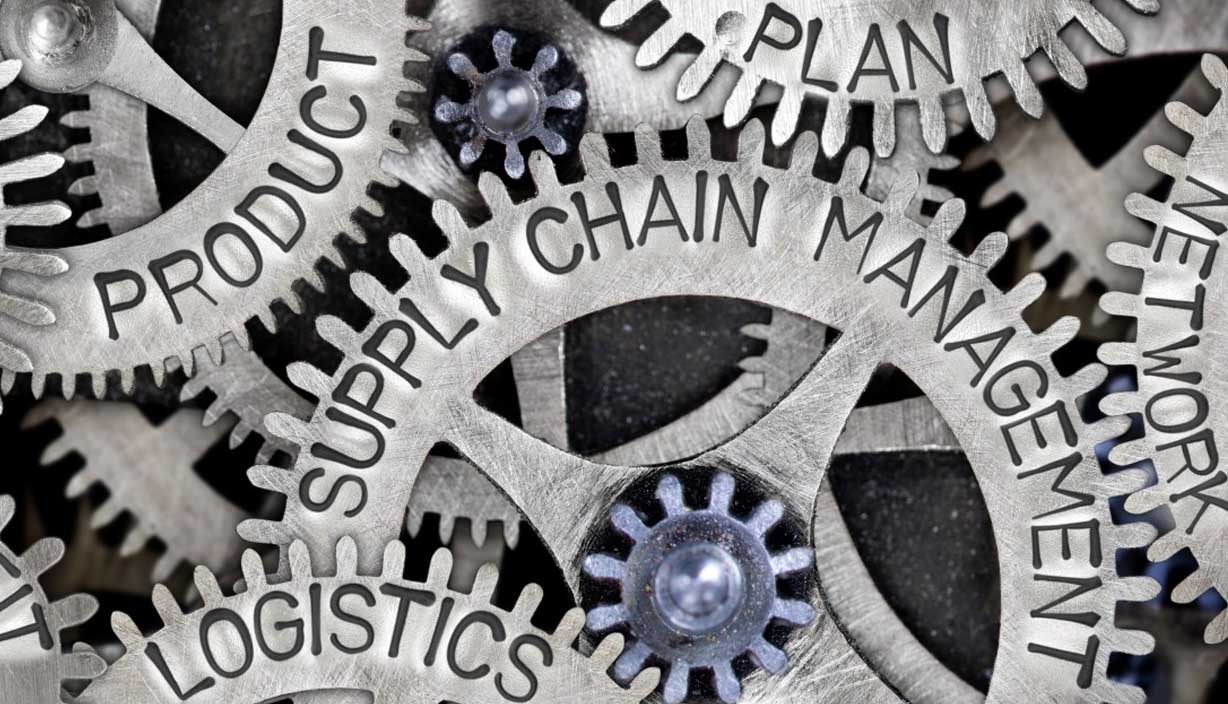
testimonials
Empowering Students with Real-World Experience: An Insight from Stephan Verhasselt, Lecturer at FHNW University of Applied Sciences in Switzerland
Stephan Verhasselt is a lecturer at FHNW University of Applied Sciences in Switzerland, where he has been teaching for over 10 years. With a background in mechanical engineering and a PhD in supply chain management, Stephan brings a wealth of industry experience to his classes. His goal is to prepare his students for the real world by providing them with hands-on learning experiences.
 Stephan Verhasselt
Stephan VerhasseltProfessor at Fachhochschule Nordwestschweiz FHNW,
Academic Program Director, Lecturer
Experience-Based Learning
"I believe that hands-on, experience-based learning is the most effective way for students to truly understand and internalize the concepts I teach," says Stephan. He emphasizes that students need to experience things themselves to truly learn.
"I believe that hands-on, experience-based learning is the most effective way for students to truly understand and internalize the concepts I teach,"
Integrating The Fresh Connection into the Curriculum
Stephan first discovered The Fresh Connection nine years ago while participating in an educational course at his former company. When the COVID-19 pandemic hit and he had to transition his lectures to an online format, he realized that The Fresh Connection would be a valuable tool for his students.
"I was impressed by The Fresh Connection when I first tried it, and when the pandemic hit, I thought it would be a great way to keep my students engaged in an online format," says Stephan. "I have now integrated it into my curriculum and have run the simulation multiple times with my students in different courses. The feedback has been overwhelmingly positive."
"It's so close to what it’s like in real life. We really now understand how supply chains work and what the mechanics are."
He says, "At the start of a course students reach a point where they don't like the simulation anymore. It's complex and you need to invest quite a bit of work into it. But in the end, they all say it is such a good experience and".
Professor Verhasselt explains how The Fresh Connection presents students with a realistic and immersive learning experience, with multiple suppliers and various supply chain management scenarios. This complexity reflects the kinds of challenges that professionals face in real-world businesses, and it helps students develop the skills they need to succeed.
Data Analytics in the Classroom
Stephan was one of the first educators to introduce the Data Analytics learning solution into his curriculum. He explains, "Learning to use the data analytics pack can be a challenge for students who are not familiar with The Fresh Connection." However, Stephan believes that this component is crucial for students to learn how to make sense of real-world data.
“I try to utilize the data they have and show them how to make sense of it. It is important for them to learn how to make sense of real-world data.”
He goes on to add that "One of the biggest challenges in the industry today is data quality. That's the reason why all of these artificial intelligence tools and big data are not working as we thought they should in the industry. It’s because the data quality is in many cases a mess."
The Fresh Connection data analytics component challenges students in a unique way, by making them work with life-like data. This experience is invaluable as it allows them to understand how to make sense of it, something that will be essential in their future careers.
He reflects back on his first course, "If I had to do it over, I would motivate my students, even more, to use the data. I’d give them some hints on the quality of data, highlighting any issues that may arise. This way, we can reduce the pain at the beginning of working with the data. I would still use low-quality data because it's a real-world problem that many industries face."
Preparing Students for the Real World
Stephan's approach to teaching is centered on providing students with real-world experience and practical skills that they can apply to their future careers. He believes that hands-on, experience-based learning is the most effective way for students to truly understand and internalize the concepts he's teaching. One way he does this is by incorporating business simulation games like The Fresh Connection and Data Analytics into his curriculum, as it allows students to simulate real-world supply chain scenarios and apply the concepts they've learned in class to life-like situations.

Applying In-Game Experiences to Real-World Practices
Stephan's students are able to apply the skills and concepts they learn in The Fresh Connection to real-life scenarios. He sees this when students are working on their Bachelor’s thesis, and they often reflect back on their experience with the business simulation game to solve problems and find solutions in their research.
"When students are working on their Bachelor thesis in their final year, they often reflect back on their experience with The Fresh Connection.
I have seen that many of my students who have completed the simulation apply the skills and concepts they learned to real-world scenarios. They often ask me, "Hey, do you remember when we did this in The Fresh Connection? Can we apply that to our research or industry?" This shows that they are able to immediately apply their learnings in real life."
Overall, Stephan's approach to teaching is focused on providing students with real-world experience and practical skills that they can apply to their future careers. He believes that this is the key to empowering students and preparing them for success in the industry.

The essence of supply chain management by Léo Ducrot
Supply chain management is about creating the operating model the company needs to realize its business strategy. It requires to make sure that all the actors of a company are working in the same direction. The Fresh Connection is the perfect tool to understand, experience, and observe the power (and challenges) of alignment. It is a very good learning experience and a lot of fun

How a home appliances company experienced an immersive circular transition
Knowing about circular economy is one thing, but implementing circular economy is way more complicated. That is why a large home appliances company formed a team for Inchainge's 3-week open program: Circularity Hands-On.
